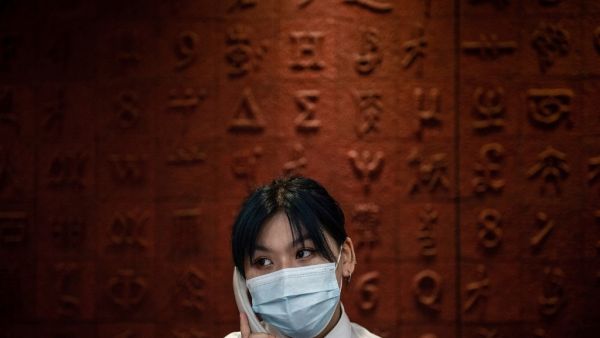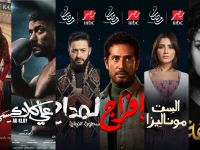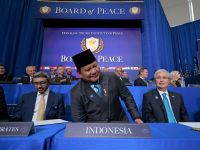Chinese officials have warned that the risk of epidemic spreading of COVID-19 in Beijing is 'very high' after dozens tested positive in a fresh cluster.
The country's Vice Premier Sun Chunlan urged the city's officials to impose 'the strictest' virus control measures to stem the new outbreak, which has been linked to a massive food wholesale market called Xinfadi.
The Chinese capital, with a population of 21.5million, has locked down at least 11 neighbourhoods close to Xinfadi and launched a mass-testing programme to screen all 46,000 people who have visited the market or live nearby.
The city reported 36 new domestic cases today, all of which were linked to the trading hub.
The boss of the Xinfadi market on Saturday told reporters that researchers had found traces of the novel coronavirus on a chopping board used to cut imported salmon.
The market was shut in the wee hours of Saturday to be disinfected. Officials said they were also rectifying relevant hygienic issues.
The city's health officials claimed that the virus was likely to have been brought into the city from Europe.
A spokesperson from the Beijing Municipal Health Commission said today that health workers had given nucleic acid tests to 76,499 people and 59 of them had been diagnosed with COVID-19.
Beijing also recorded six asymptomatic cases today. The city currently has 79 domestic COVID-19 patients being treated in hospital.
Nationwide, the Chinese National Health Commission has reported a total of 83,181 coronavirus infections, of which 177 are active. The official death toll remains at 4,634.
Several districts in Beijing reinstated security checkpoints, ordered residents be tested and closed schools on Monday in response to the unexpected resurgence of COVID-19.
After nearly two months with no new infections, Beijing officials have reported 79 cases over the past four days, the biggest concentration of infections since February.
The return of COVID-19 in Beijing has shrouded the city, home to the headquarters of many big corporations, in uncertainty at a time China is trying to shake off the economic torpor of the virus.
The risk of the Beijing epidemic spreading 'is very high', warned Chinese Vice Premier Sun Chunlan at a meeting on Sunday.
Sun said Xinfadi, the market at the centre of the cluster, had a highly dense and mobile population and therefore could prompt epidemic spreading. She urged the officials to carry out 'resolute' and 'decisive' measures to stop a possible resurgence of the virus.
The urgent order was once again highlighted today at a press conference held by the city's government.
'The risk of the epidemic spreading is very high, so we should take resolute and decisive measures,' Xu Hejiang, a spokesman at the Beijing city government, instructed.
The outbreak has been traced to the city's Xinfadi, the biggest wholesale food market in Asia, where thousands of tonnes of vegetables, fruits and meats change hands each day.
A complex of warehouses and trading halls spanning an area the size of nearly 160 football pitches, Xinfadi is more than 20 times larger than the seafood market in Wuhan where the outbreak was first identified.
The spate of new cases prompted officials in many parts of the city to swiftly bring back tough counter-epidemic measures, with at least three districts entering 'war-time mode'.
Measures imposed included erecting round-the-clock security checkpoints, closing schools and sports venues, and reinstating temperature checks at malls, supermarkets and office buildings.
Some districts also dispatched officials to residential compounds in what they described as a 'knock, knock' operation to identify people who have visited Xinfadi or been in contact with somebody who has.
Beijing began testing on masse on Sunday, conducting tens of thousands of examinations.
Samples of 8,950 people who were identified as recently being at Xinfadi had been collected as of early Monday, said Gao Xiaojun, a spokesperson for the Beijing public health commission, at Monday's briefing. Results from the 6,075 tested so far were negative, Gao said.
A vegetable wholesaler at Xinfadi said he had to stay in quarantine for 14 days at a designated hotel even after his test was negative.
'I've to take another test after the 14 days,' he said, speaking on condition of anonymity.
The World Health Organization said on Sunday that it had been informed of the outbreak and a subsequent investigation by Chinese officials.
'WHO understands that genetic sequences will be released as soon as possible once further laboratory analyses are completed,' it said in a statement.
An epidemiologist with the Beijing government said on Sunday a DNA sequencing of the virus showed the Xinfadi outbreak could have come from Europe.
Yang Peng, a researcher from the Beijing Center for Disease Control and Prevention, told state TV preliminary tests showed that the virus had been 'imported' into Beijing. However, experts were still trying to find out how the virus had arrived.
Governments in some other cities and provinces warned their residents against non-essential travel to the capital and implemented isolation protocols for some visitors from Beijing.
Wang Xiaoyang, who works in public relations in the southern boomtown of Shenzhen, said she received a text message from local authorities telling her to stay at home for 14 days after returning from Beijing on Friday.
The north-eastern Liaoning province and northern Hebei province reported a combined handful of cases connected to the Beijing infections. Sichuan in the southwest reported one suspected case.
Baoding, a highly industrialised city in Hebei about 150 kilometres (93 miles) southwest of Beijing, was closely monitoring entry.
'Every gate to Baoding should be strictly guarded to prevent the contagion from spreading in the city,' state media quoted Baoding officials as saying.
This article has been adapted from its original source.








